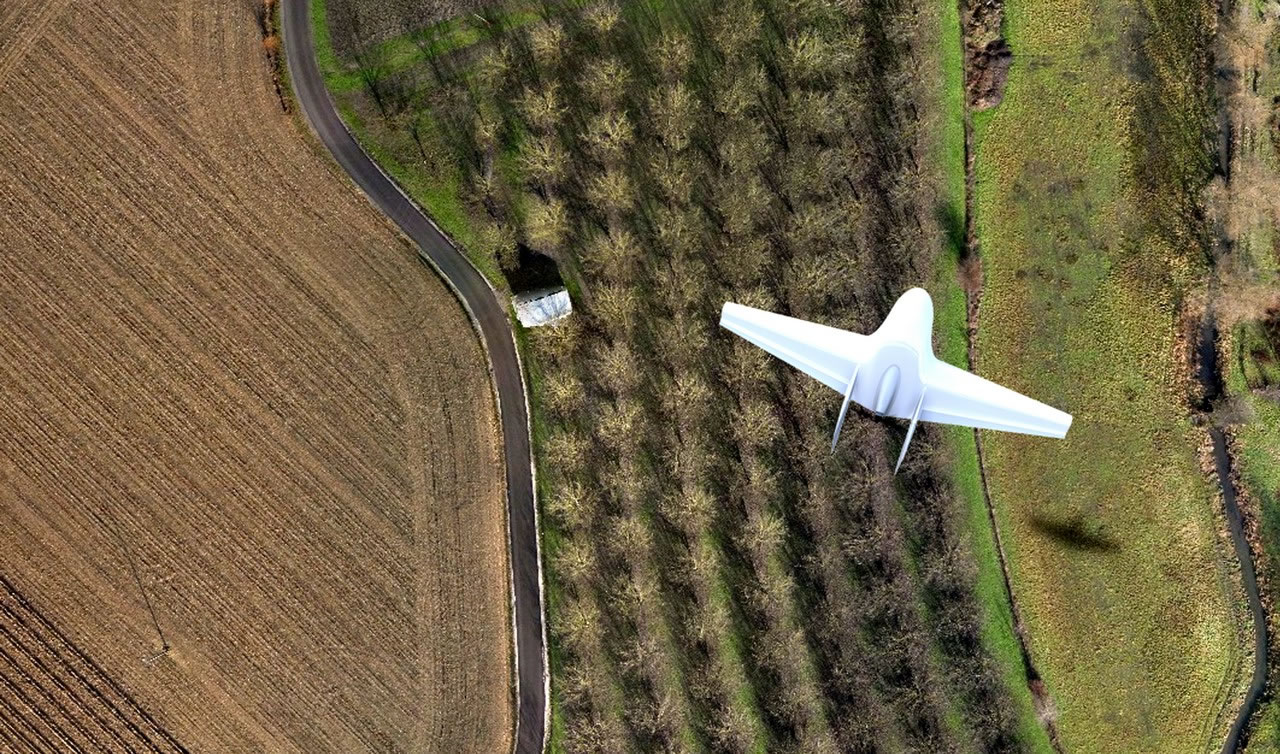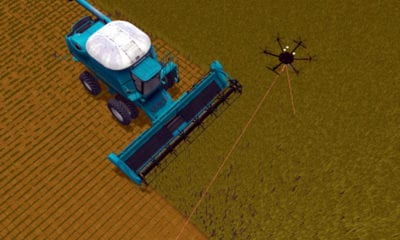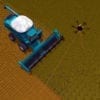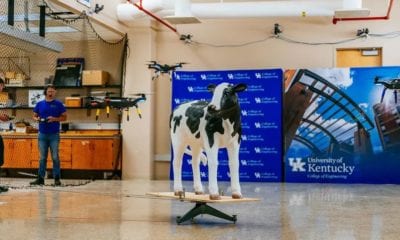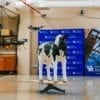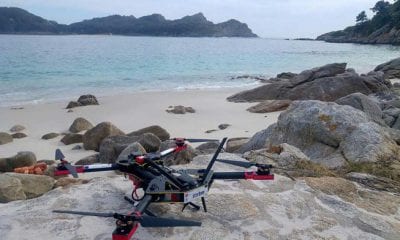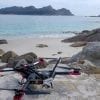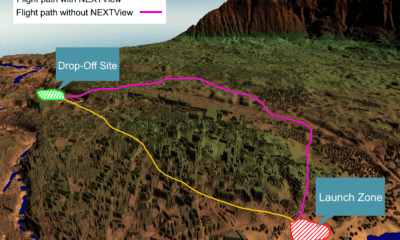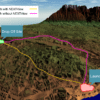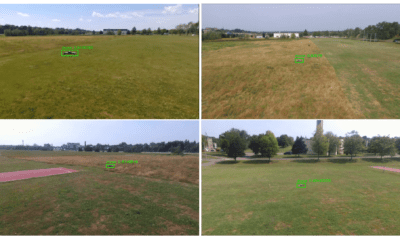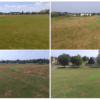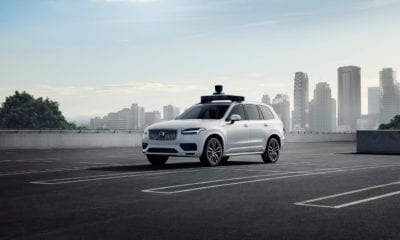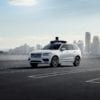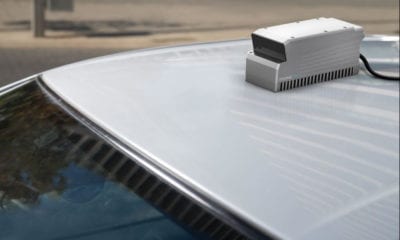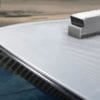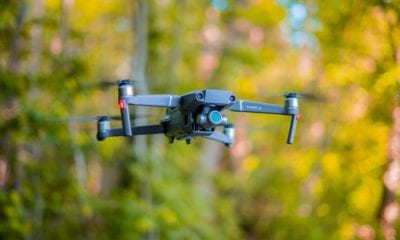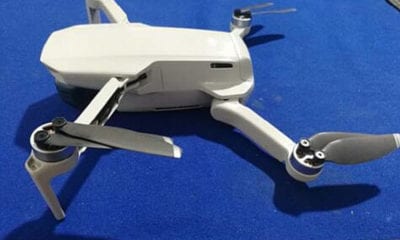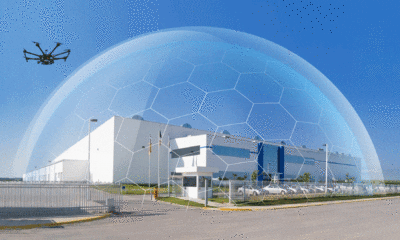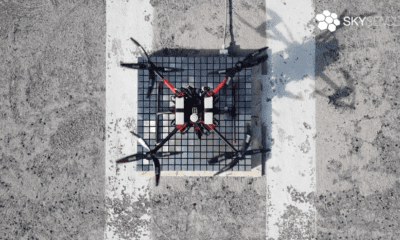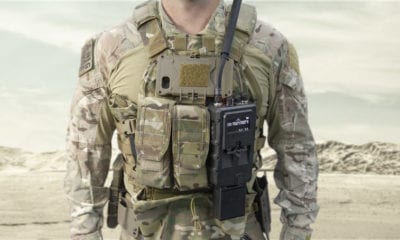AI
A Drone Fueled Industry and Agricultural Revolution
Advances in Robotics, AI, and Data Science are affecting the human journey as never before. Several productive sectors are experiencing the second industrial revolution. Drone technologies are one of the driving forces towards a completely new landscape in many human activities including traditional labour-intensive sectors such as farming, agriculture, maintenance, etc. Conventional farming and agriculture, for example, are gradually becoming the past.
Published in DroneNet 19-Proceedings of the 5th Workshop on Micro Aerial Vehicle Networks, Systems, and Applications – the discussion presented by author Giovanni Pau of University Pierre et Marie Curie, Paris France shares a holistic view on how connected robots and sensors will contribute to change key areas of industry and agriculture and forge a new connubial men-machine relationship to change the scale and the quality of our production systems to meet the demands of our communities.
According to Giovanni Pau the next Industrial revolution is at our doorstep. It requires overcoming technological, societal and economic challenges including those related to autonomous robots, machine intelligence, sensor systems and prediction models.
Over the next few decades production processes in the world’s most traditional industry will witness changes with a magnitude comparable to those regarded by history as first and second agricultural revolutions. Agriculture 3.0 is here- the third agricultural revolution driven by sensors, actuators, robots and machine intelligence.
A new generation of “digital-farmers” and low-cost technology access is fuelling deployments in companies of any size from tiny family-owned to large mega-farms. Infrastructure monitoring and maintenance processes are also changing their core operations. Drones are increasingly participating in dangerous operations that old-style maintenance workers underwent.
Advanced drone-operators will be able to fly and operate robotic arms to perform operations. This is currently happening in high-risk sectors such as Energy production and distribution where drones are being employed to monitor the infrastructure and perform routine maintenance.
Dr. Giovanni Pau is the ATOS/Renault smart mobility Chair Professor at the University Pierre et Marie Curie, Paris France. He holds the Italian Laura in Computer Science and a PhD in Computer Engineering awarded by the University of Bologna in 1998 and 2002 respectively. Before joining UPMC, Dr. Pau was a Senior Research Scientist at the UCLA Computer Science Department. Dr. Pau core research interests are in Network Systems with a focus on Vehicular Networks and pervasive mobile sensor systems. He designed and built the UCLA campus vehicular testbed and the UCLA/MPI urban sensing testbed designed to enable hands-on studies on vehicular communications and urban sensing. His research contributions lead to the VERGILIUS and CORNER simulation suites designed to support mobility and propagation modelling in urban environments. More recently, Dr. Pau designed and developed VNDN the Named Data Network (NDN) protocol stack specifically adapted to work on mobile-to-mobile scenarios. Dr. Pau has published more than 80 papers in International Conferences and Archival Journals. His work on vehicular networks has been widely cited by the community and reported on in the general media including BBC Radio, Discovery Channel, The Guardian, Wired, Corriere della Sera, and the Italian National Television.
Citation: Giovanni Pau. 2019. Drones Fueled Revolutions: Into the Era of Autonomous Workers and Digital Humans. In Proceedings of the 5th Workshop on Micro Aerial Vehicle Networks, Systems, and Applications (DroNet’19). ACM, New York, NY, USA, 1-1. DOI: https://doi.org/10.1145/3325421.3329771

